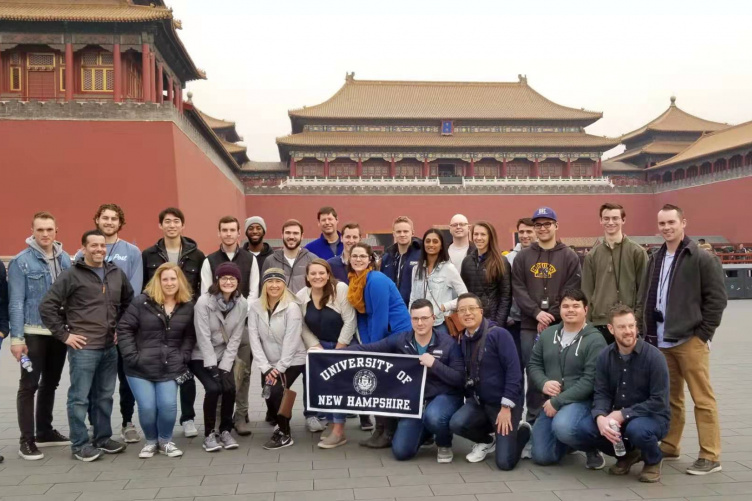
What will set an MBA graduate apart from others? According to Jun Li, associate professor of strategic management and entrepreneurship, it’s strategic thinking with global perspectives. Li teaches an international business class to the full-time MBA cohort complete with an international residency in China.
“International business introduces students to knowledge, skills, and global mindsets that are essential to today’s dynamic global business world,” says Li.
After the full-time MBA students spend seven weeks in the classroom learning about international business, they prepare for an 11-day trip abroad to practice what they’ve learned.
“We started to focus on China for the trip because of the increasing importance of the Chinese economy and how it is also a very distant culture to our own Western culture,” says Li.
This 11-day international residency introduces students to Chinese industries and companies (both global and local) while adding in group sightseeing activities, like experiencing the local food and culture and even tobogganing down the Great Wall.
“You can only teach so much in the classroom before you can actually get some hands-on experience,” says Meghan Lynch, a student in the class. “Developing our understanding of how businesses can change based on all of the external factors that we talk about in class while immersing ourselves in the culture made the trip so valuable.”
Learning about how business is different in China was eye-opening for the students. A major asset to their learning experience occurred when students were able to gain firsthand knowledge in international business as they met with companies like global software solution provider SAP, global marketing firm Ogilvy and Chinese start-up firms such as Lettin, an innovator in the LED technology industry. Here, they listened to senior executives at the front line of international businesses who expressed their own success or failure stories in this largest emerging market.
“There are very specific ways to perform business transactions over there. Without knowing those and appreciating those and participating in those, you’re not going to go anywhere in business. You’re not going to be successful,” Lynch says.
And it’s more complicated when business practices or norms vary from region to region in the same country.
“China is a very large place, so one particular method or one moral perspective does not apply to all the provinces there,” says Carlos Quinones, another student in the class. “There could be very distinct and polar opposite differences on how a particular region’s people view a situation, so when it comes to marketing and advertising, for example, one size does not fit all.”
Although the trip was only 11 days, the students gained invaluable knowledge along with the experience of a lifetime.
“I think I learned more from this trip than the other 10 times I’ve traveled,” Lynch says.
-
Written By:
Jackie Sampson | Paul College Communications and Marketing Student Writer | js1219@wildcats.unh.edu | 978-994-3220
















































